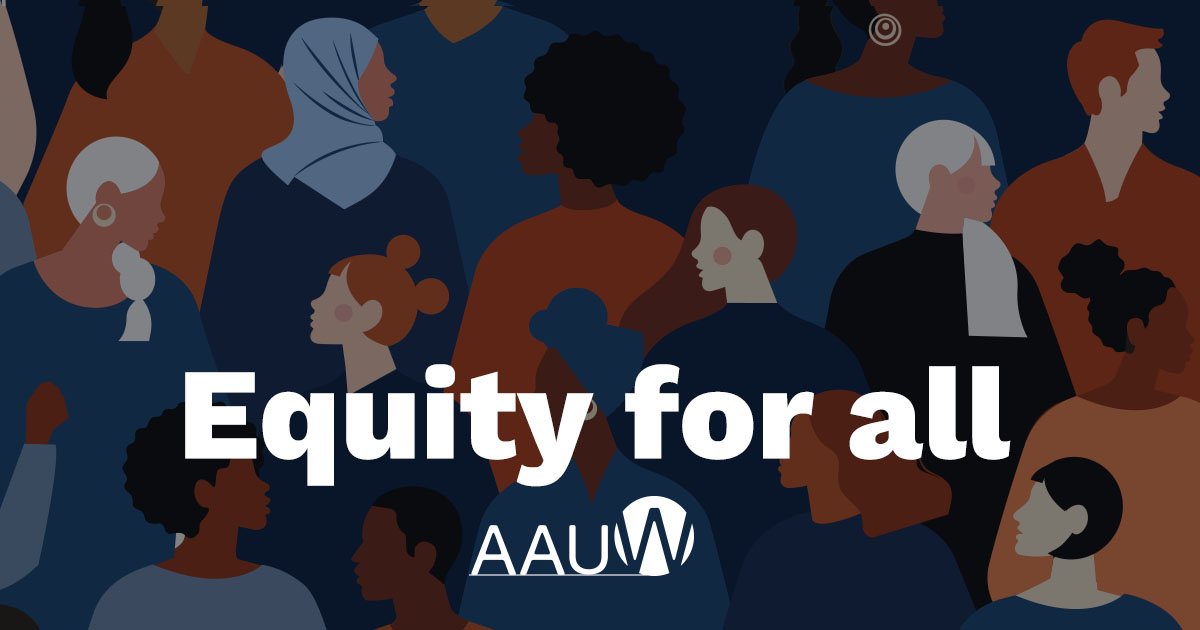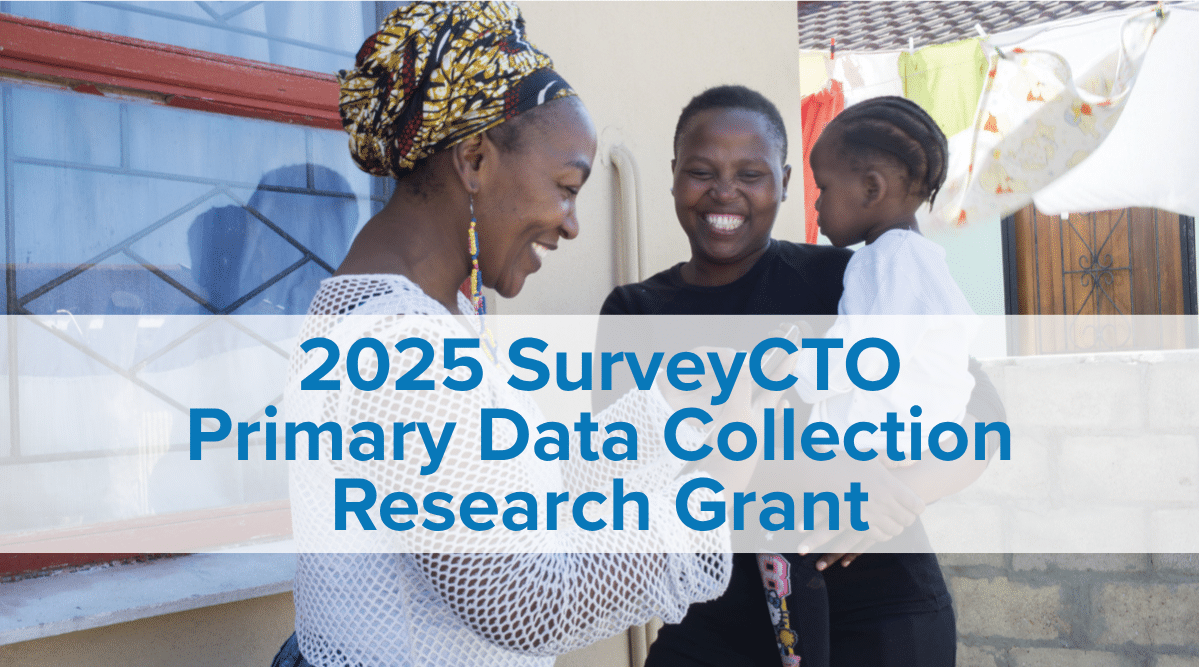Browse
Other
Edited Volume on "Feminism and Literary Studies in African Literature and Culture"
Book Series Title: Contemporary Literary Studies on Language and LiteraturePublisher: HJ Verlag Maurer – Maurer Press, Frankfurt, GermanyWebsite: www.maurer.press
We invite contributions for the next volume of our series, Contemporary Literary Studies on Language and Literature. This volume is dedicated to exploring feminist perspectives in literature and culture, providing a platform for work that highlights the diverse ways feminism continues to shape literary scholarship.
We welcome chapters that examine women’s and gender-diverse voices in literature, challenge patriarchal structures, and consider how feminist approaches intersect with race, class, sexuality, disability, ecology, and postcolonial contexts. Submissions may focus on novels, poetry, drama, life writing, oral traditions, or interdisciplinary forms.
Possible Areas of Inquiry (not limited to):
Feminist literary criticism and theory
Postcolonial and decolonial feminism
Ecofeminism and environmental justice
Queer feminism and sexuality in literature
Disability feminism and embodiment
Re-reading canons and genres through feminist lenses
Feminist experimentation with form and narrative
Other feminist and intersectional approaches to literature are also welcome.
Submission Guidelines
Abstract: Minimum 250 words (including a short bio of the author)
Full Chapter: Minimum 4,000 words
Formatting: Times New Roman, APA 6th edition, justified text, 1.15 spacing
Languages Accepted: English, German, Turkish, and Azerbaijani
Plagiarism and Similarity Policy
All submissions will be screened using Turnitin. Works with a similarity index above 20% cannot be considered.
Important Dates
Abstract Submission Deadline: 15 September 2025
Full Chapter Submission Deadline: 30 November 2025
Estimated Publication Date: January / February 2026
There will also be publication fees charged
Submission Emails
Please send abstracts and full chapters (once accepted) to all of the following:
Dr. Gülşah Kıran Elkoca (Editor): gulsah.k@adu.edu.tr
Kanan Aghasiyev (Editor, M.A.): kaasiyev@gmail.com
Prof. Dr. Habib Tekin (Editor): habib.tekin@marmara.edu.tr
Read more: https://networks.h-net.org/group/announcements/20122592/edited-volume-feminism-and-literary-studies
By:
Baboki Gaolaolwe-Major
Monday, Aug 18, 2025
OTHER
No Preview Available
Leave a comment
Fellowship_The Textile Museum Curatorial Fellowship
he George Washington University Museum and The Textile Museum is pleased to announce a new research fellowship for the 2026–2027 academic year. The yearlong Textile Museum Curatorial Fellowship offers a rare opportunity to pursue intensive, collections-based textile research in one of the world’s most significant textile collections, within the distinctive setting of an academic museum.
The Fellowship aims to support the quality, vitality, and diversity of research in textile studies while strengthening curators’ intellectual stewardship of The Textile Museum Collection.
This opportunity is ideal for an advanced doctoral student or a postdoctoral researcher who earned their Ph.D. within the past two years and whose research interests align with The Textile Museum Collection and its current research priorities.
For further information and to apply, please visit: https://www.gwu.jobs/postings/121582.
Contact Information
TM Curatorial Department
Contact Email
museumcuratorial@gwu.edu
By:
Baboki Gaolaolwe-Major
Monday, Aug 18, 2025
OTHER
No Preview Available
Leave a comment
Catalyst Fund – Resilience I “Pitch to Us” Programme (Africa)
Deadline: Dec 31, 2025
Donor: Catalyst Fund
Grant Type: Grant
Grant Size: $100,000 to $500,000
Countries/Regions: Algeria, Angola, Benin, Botswana, Burkina Faso, Burundi, Cameroon, Cape Verde, Central African Republic, Chad, Comoros, Congo (Brazzaville), Congo DR, Cote DIvoire (Ivory Coast), Djibouti, Egypt, Equatorial Guinea, Eritrea, Ethiopia, Gabon, Gambia, Ghana, Guinea, Guinea-Bissau, Kenya, Lesotho, Liberia, Libya, Madagascar, Malawi, Mali, Mauritania, Mauritius, Mayotte, Morocco, Mozambique, Namibia, Niger, Nigeria, Reunion, Rwanda, Saint Helena, Sao Tome And Principe, Senegal, Seychelles, Sierra Leone, Somalia, South Africa, Sudan, Swaziland, Tanzania, Togo, Tunisia, Uganda, Western Sahara, Zambia, Zimbabwe, South Sudan
Area: Businesses, Companies and Enterprises, Startups, Climate Change, Technology
Catalyst Fund is seeking innovative, scalable African companies focused on climate adaptation and resilience to partner with.
For more information, visit https://www.thecatalystfund.com/pitch-to-us
Premium Link: https://grants.fundsforngospremium.com/opportunity/op/catalyst-fund-resilience-i-pitch-to-us-programme-africa
By:
Baboki Gaolaolwe-Major
Thursday, Aug 7, 2025
OTHER
No Preview Available
Leave a comment
Fashion Academy Abuja Training Programme (Nigeria)
Deadline: Aug 11, 2025
Donor: The Fashion Academy Abuja
Grant Type: Training
Grant Size: Not Available
Countries/Regions: Nigeria
Area: Business & Industry, Businesses, Companies and Enterprises, Entrepreneurship, Innovation
The Fashion Academy Abuja Fashion Academy Abuja Training Programme is now open to bridge skill gaps and empower the next generation of fashion innovators with technical expertise and business acumen.
For more information, visit https://clap.gov.ng/
Premium Link: https://grants.fundsforngospremium.com/opportunity/op/fashion-academy-abuja-training-programme-nigeria
By:
Baboki Gaolaolwe-Major
Thursday, Aug 7, 2025
SCIENCE, TECHNOLOGY AND INNOVATION
+1
No Preview Available
Leave a comment
Applications open for Postdoctoral Visiting Fellowships
Deadline: Oct 01, 2025
Donor: Kellogg Institute for International Studies
Grant Type: Fellowship
Grant Size: Not Available
Countries/Regions: All Countries
Area: Democracy & Good Governance, Individuals, PhD Holder, Research
The Kellogg Institute for International Studies is seeking applications for its Kellogg Institute Postdoctoral Visiting Fellowships to award newly minted PhDs who conduct research on global democracy.
For more information, visit https://kellogg.nd.edu/opportunities/visiting-researchers/about-our-postdoctoral-visiting-fellowships#tab-3426
Premium Link: https://grants.fundsforngospremium.com/opportunity/op/applications-open-for-postdoctoral-visiting-fellowships
By:
Baboki Gaolaolwe-Major
Thursday, Aug 7, 2025
OTHER
No Preview Available
Leave a comment
Mpumalanga Tourism Youth Fund 2025 (South Africa)
Deadline: Sep 30, 2025
Donor: National Youth Development Agency
Grant Type: Grant
Grant Size: Not Available
Countries/Regions: South Africa
Area: Arts & Culture, Organizing Events, Businesses, Companies and Enterprises, Hotels, Restaurants and Hospitality, Sports & Recreation, Tourism & Travel, Transportation, Youth & Adolescents
Applications are now open for the Mpumalanga Tourism Youth Fund 2025, supporting young entrepreneurs running businesses in the tourism sector.
For more information, visit https://www.facebook.com/permalink.php?story_fbid=pfbid02rbSK5Kj1tCGrDhPtbKNFUyvrPpb25tH81Vhc3LK8AkQnCFp1E83SQ4KNFHb5eZP5l&id=100064507821942
Premium Link: https://grants.fundsforngospremium.com/opportunity/op/mpumalanga-tourism-youth-fund-2025-south-africa
By:
Baboki Gaolaolwe-Major
Thursday, Aug 7, 2025
OTHER
No Preview Available
Leave a comment
Nominations open for ARVO Foundation Research Catalyst Awards
Deadline: Oct 01, 2025
Donor: The Association for Research in Vision and Ophthalmology
Grant Type: Awards, Prizes and Challenges
Grant Size: $10,000 to $100,000
Countries/Regions: All Countries
Area: Career Development, , Research
Entries are now open for the Association for Research in Vision and Ophthalmology Foundation Research Catalyst Awards for investigators beginning their careers or returning to the workforce after an extended leave.
For more information, visit https://www.arvo.org/awards-grants-and-fellowships/research-awards/research-catalyst-awards/
Premium Link: https://grants.fundsforngospremium.com/opportunity/op/nominations-open-for-arvo-foundation-research-catalyst-awards
By:
Baboki Gaolaolwe-Major
Thursday, Aug 7, 2025
EDUCATION
+1
No Preview Available
Leave a comment
AAUW’s International Postdoctoral Research Fellowships
Deadline: Sep 30, 2025
Donor: AAUW Action Fund
Grant Type: Fellowship
Grant Size: $10,000 to $100,000
Countries/Regions: Afghanistan, Aland Islands, Albania, Algeria, American Samoa, Andorra, Angola, Anguilla, Antarctica, Antigua and Barbuda, Argentina, Armenia, Aruba, Australia, Austria, Azerbaijan, Bahamas, Bahrain, Bangladesh, Barbados, Belarus, Belgium, Belize, Benin, Bermuda, Bhutan, Bolivia, Bosnia And Herzegovina, Botswana, Bouvet Island, Brazil, British Indian Ocean Territory, Brunei, Bulgaria, Burkina Faso, Burundi, Cambodia, Cameroon, Canada, Cape Verde, Cayman Islands, Central African Republic, Chad, Chile, China, Christmas Island, Cocos (Keeling) Islands, Colombia, Comoros, Congo (Brazzaville), Congo DR, Cook Islands, Costa Rica, Cote DIvoire (Ivory Coast), Croatia, Cuba, Cyprus, Czech Republic, Denmark, Djibouti, Dominica, Dominican Republic, Ecuador, Egypt, El Salvador, Equatorial Guinea, Eritrea, Estonia, Ethiopia, Falkland Islands (Malvinas), Faroe Islands, Fiji, Finland, France, French Guiana, French Polynesia, French Southern Territories, Gabon, Gambia, Georgia, Germany, Ghana, Gibraltar, Greece, Greenland, Grenada, Guadeloupe, Guam, Guatemala, Guernsey, Guinea, Guinea-Bissau, Guyana, Haiti, Heard Island And Mcdonald Islands, Holy See (Vatican City State), Honduras, Hong Kong SAR, Hungary, Iceland, India, Indonesia, Iran, Iraq, Ireland, Isle Of Man, Israel, Italy, Jamaica, Japan, Jersey, Jordan, Kazakhstan, Kenya, Kiribati, South Korea, North Korea, Kuwait, Kyrgyzstan, Laos, Latvia, Lebanon, Lesotho, Liberia, Libya, Liechtenstein, Lithuania, Luxembourg, Macau, Macedonia, Madagascar, Malawi, Malaysia, Maldives, Mali, Malta, Marshall Islands, Martinique, Mauritania, Mauritius, Mayotte, Mexico, Micronesia Federated States Of, Moldova Republic Of, Monaco, Mongolia, Montserrat, Morocco, Mozambique, Burma(Myanmar), Namibia, Nauru, Nepal, Netherlands, Netherlands Antilles, New Caledonia, New Zealand, Nicaragua, Niger, Nigeria, Niue, Norfolk Island, Northern Mariana Islands, Norway, Oman, Pakistan, Palau, Palestinian Territories, Panama, Papua New Guinea, Paraguay, Peru, Philippines, Pitcairn, Poland, Portugal, Puerto Rico, Qatar, Reunion, Romania, Russia, Rwanda, Saint Helena, Saint Kitts And Nevis, Saint Lucia, Saint Pierre And Miquelon, Saint Vincent And The Grenadines, Samoa, San Marino, Sao Tome And Principe, Saudi Arabia, Senegal, Seychelles, Sierra Leone, Singapore, Slovak Republic, Slovenia, Solomon Islands, Somalia, South Africa, South Georgia And The South Sandwich Islands, Spain, Sri Lanka, Sudan, Suriname, Svalbard And Jan Mayen, Swaziland, Sweden, Switzerland, Syria, Taiwan, Tajikistan, Tanzania, Thailand, East Timor (Timor-Leste), Togo, Tokelau, Tonga, Trinidad And Tobago, Tunisia, Turkey, Turkmenistan, Turks And Caicos Islands, Tuvalu, Uganda, Ukraine, United Arab Emirates, United Kingdom, United States Minor Outlying Islands, Uruguay, Uzbekistan, Vanuatu, Venezuela, Viet Nam, British Virgin Islands, United States Virgin Islands, Wallis And Futuna, Western Sahara, Yemen, Zambia, Zimbabwe, Montenegro, Saint Barthélemy, Serbia, Kosovo, South Sudan , Curaçao, Bonaire Sint Eustatius and Saba, Saint Martin (French Part), Sint Maarten (Dutch Part)
Area: Education, PhD Holder, Women and Girls, Leadership, Research, Women & Gender
The AAUW’s International Postdoctoral Research Fellowships promote education and equity for women by investing in international applicants who will be pursuing postdoctoral research in the U.S., with the intention of applying their expertise, professional skills, and leadership in the context of their home countries.
For more information, visit https://www.aauw.org/resources/programs/international-postdoctoral-research-fellowships/
Premium Link: https://grants.fundsforngospremium.com/opportunity/op/aauws-international-postdoctoral-research-fellowships
By:
Baboki Gaolaolwe-Major
Thursday, Aug 7, 2025
EDUCATION
+1

No Preview Available
Leave a comment
SurveyCTO Primary Data Collection Research Grant
Deadline: Sep 30, 2025
Donor: SurveyCTO
Grant Type: Grant
Grant Size: $1000 to $10,000
Countries/Regions: All Countries
Area: Researchers, Students, Marketing, Research
The SurveyCTO is excited to announce that the Primary Data Collection Research Grant is returning for another year!
For more information, visit https://www.surveycto.com/data-collection-research-grant/
Premium Link: https://grants.fundsforngospremium.com/opportunity/op/surveycto-primary-data-collection-research-grant
By:
Baboki Gaolaolwe-Major
Thursday, Aug 7, 2025
OTHER

No Preview Available
Leave a comment
Applications open for Energy Starter Program
Deadline: Aug 22, 2025
Donor: EDP
Grant Type: Events
Grant Size: Not Available
Countries/Regions: All Countries
Area: Businesses, Companies and Enterprises, Startups, Energy, Innovation, Technology
Are you ready to scale your solution globally with a leading energy company? Join EDP on this journey and apply for the upcoming edition!
For more information, visit https://theenergystarter.com/
Premium Link: https://grants.fundsforngospremium.com/opportunity/op/applications-open-for-energy-starter-program
By:
Baboki Gaolaolwe-Major
Monday, Aug 4, 2025
OTHER

No Preview Available
Leave a comment
Nominations open for Dan David Prize
Deadline: Sep 24, 2025
Donor: The Dan David Prize
Grant Type: Awards, Prizes and Challenges
Grant Size: $100,000 to $500,000
Countries/Regions: All Countries
Area: Archaeology, Art History and Preservation, Researchers, Humanities
Entries are now open for Dan David Prize, a world’s largest history prize, annually awarding 9 prizes to early and midcareer scholars and practitioners in the historical disciplines, to acknowledge their outstanding achievements and support future work.
For more information, visit https://dandavidprize.org/nominate/
Premium Link: https://grants.fundsforngospremium.com/opportunity/op/nominations-open-for-dan-david-prize
By:
Baboki Gaolaolwe-Major
Monday, Aug 4, 2025
OTHER
No Preview Available
Leave a comment
Applications open for Getty Library Research Grants
Deadline: Oct 01, 2025
Donor: Conservation Research Foundation Museum
Grant Type: Grant
Grant Size: $1000 to $10,000
Countries/Regions: All Countries
Area: Arts & Culture, Researchers, Research
The Getty Library Research Grants offers support for researchers to use the Getty Library’s collections.
For more information, visit https://www.getty.edu/projects/library-research-grants/
Premium Link: https://grants.fundsforngospremium.com/opportunity/op/applications-open-for-getty-library-research-grants
By:
Baboki Gaolaolwe-Major
Monday, Aug 4, 2025
CULTURE AND SOCIETY
+1

No Preview Available

Leave a comment